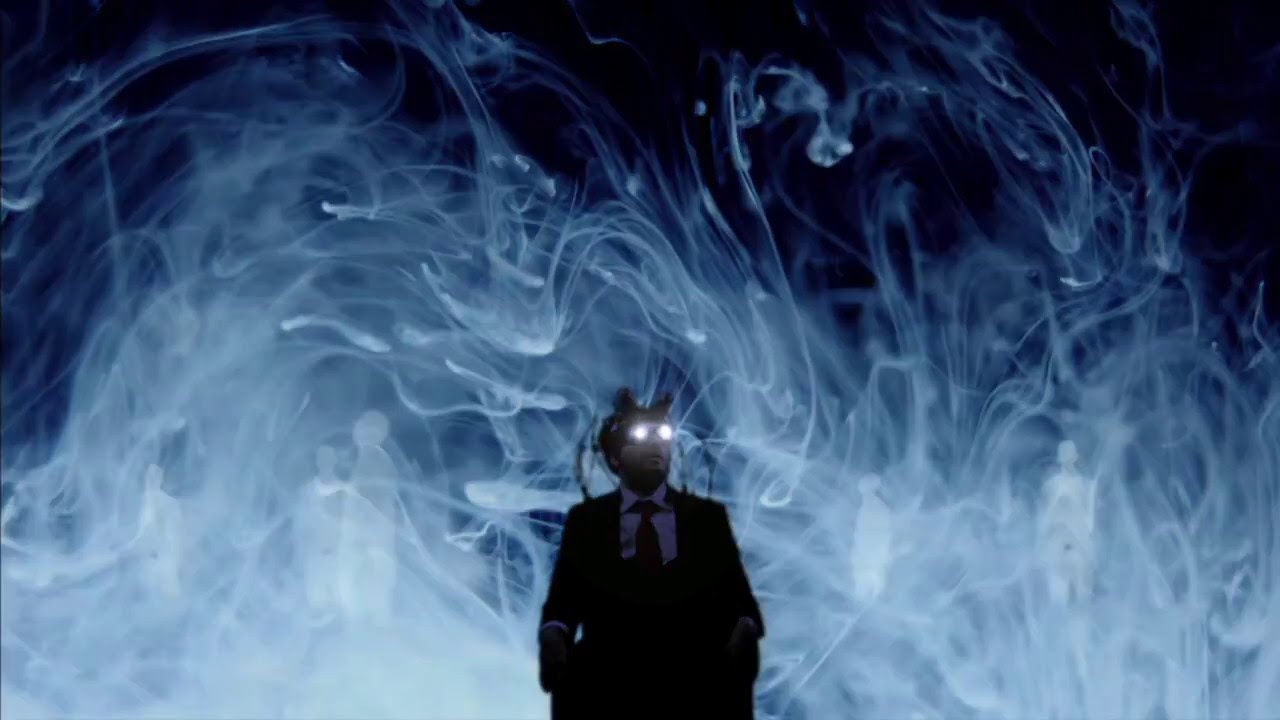By Chlotrudis Independent Film Society
Rating: 2.75
Director: Philip T. Johnson
Starring: Aaron Graham | Brad Norman | Kenneth Hughes | Kirby O’Connell

Country: united_states
Year: 2016
Running time: 89
IMDB: http://www.imdb.com/title/tt1773389/
Jason says: “There’s an atom-thin line between movies that separate themselves from the pack by being prepared with irreverence, eccentric characters, and black comedy and the ones that fail horribly because injecting that sort of thing into something that wants to be at least partially taken seriously is really hard to do, and I’m not quite sure which side EINSTEIN’S GOD MODEL falls on. There are moments when filmmaker Philip T. Johnson shows the wit to stand out from the large crowd of people building movies out of whatever discarded analog equipment they can find, but not as many as one might like; still, the good bits make it more memorable than a lot of the homebrew sci-fi out there.
“After an opening that shows an experiment from a few years back going so badly as they usually do in this sort of prologue, we meet Brayden Taylor (Aaron Graham) and Abbey Lucey (Kirby O’Connell), a young couple sweet and likable enough that Abbey can’t be long for this world. Her death sends Brayden into a downward spiral until he eventually discovers a device developed decades ago with the intent of communicating with the dead. The last scientist investigating it is dead, but his protégé Louis Masterbrook (Kenneth Hughes) is eager to insist, and he gets them in touch with Craig Leeham (Brad Norman), a medium who owes his powers to that experiment from the start.
“Johnson puts a claim that this is based on ‘real science’ and spends a lot of time name-dropping well-known physicists and inventors throughout the film, especially in a set of opening titles that will definitely amuse some in the audience, but it’s likely not that much better than is typical. When you get right down to it, it’s basically talking about ghosts and using lab equipment as props rather than religious or spiritual iconography. That’s tricky; the best ghost stories work based more on pure emotion than mechanics, and taking a science-fictional approach inverts that, potentially pushing things too far toward procedure compared to feeling, and that’s an obstacle that EINSTEIN’S GOD MODEL occasionally stumbles over, especially at the climax, when the shell game overwhelms the emotional attachment that supposedly enables it.
“The set-up could be pretty dull if not for the eccentric group that Johnson has playing it out. Aaron Graham’s Brayden isn’t much individually – he often seems to be going through the motions of grief and obsession rather than actually feeling it – but he’s just enough of a tether to get the audience to buy into the rest of the cast. There you get Kenneth Hughes as an expert who feels like even more of a jerk than the classically brusque scientific genius because he has inserted himself into Brayden’s activities rather than having been brought in reluctantly. The real gem, though, is Brad Norman as Craig, who plays like a goofy throw-away bit in the opening but returns nastily sarcastic later on (with good reason for the bad attitude), a sharper reminder that you might not want to mess with this stuff than most movies have.
“Johnson puts them in a situation that is often kind of familiar – cobbled-together equipment that hasn’t been upgraded because the scientists don’t know what’s making it work and wouldn’t want to lose that by taking it apart, mysterious agents from a secret agency – but adds enough detail to make it work better than usual, which apparently works even if those details are bull or play like an attempt to put an Easter egg for science enthusiasts so far in the foreground that you can’t see anything around it. That seems to be the same impulse that leads to some painfully jarring moments, like a visual gag that’s amusing once but not when repeated in every establishing shot or a tragic death that plays much more like a Roadrunner cartoon than it really should.
“Complaining about some of these inconsistencies can seem kind of unfair – it’s probably better to strike out a few times with personality than to be just another bland lo-fi sci-fi movie. Truth be told, I find them fairly encouraging; Johnson comes a lot closer to the spot where his movie both has a story that works and has an entertaining style of its own than most first-time filmmakers do. That may sound like praising with faint damnation, but folks have to start somewhere, and Johnson is a bit ahead of the crowd with EINSTEIN’S GOD MODEL. 2.75 cats
“Seen 6 February 2016 in Somerville Theatre #2 (Boston Sci-fi Film Festival, digital)”
